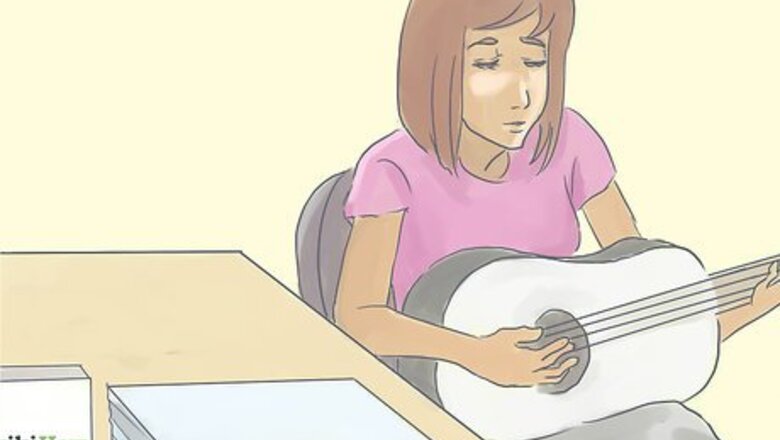
views
Attitude and Personal Care

Nurture your self-esteem. Face your insecurities, recognize your strengths, and learn to appreciate yourself for the good person you are. Watch your self talk, and treat yourself the way you'd treat a friend. (Would you call your friend stupid for doing poorly on a test? No? Then don't do it to yourself, because you deserve better).

Practice self care. It's hard to lift others up when you're barely staying afloat. Look out for your physical and psychological health so that you can feel energetic and grounded when other people need you. Eat well, take walks or do other forms of exercise, get at least 8 hours of sleep, and stay hydrated. This is all important to your well-being. Learn how to say no. It's important to set boundaries in your life, and stick by them. Even though it might feel tough, boundaries are an act of love—they allow you to breathe, and keep the relationship strong. Spend time doing things you love. Hang out with loved ones, work on your hobbies, and schedule relaxation time every day.
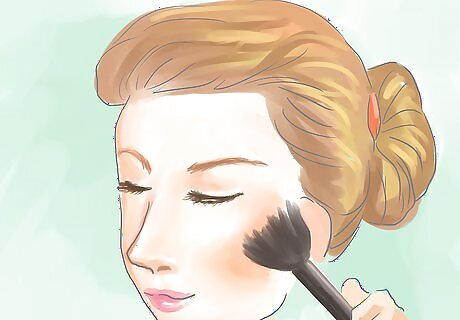
Present yourself well. Bathe regularly, wash your face, brush your teeth, comb your hair, and wear clean clothes. Looking good lets people know that you care about them enough to be your best for them. Wearing designer clothes, doing your hair, and wearing makeup are all optional. It's okay to do them if you like them, but there is absolutely nothing wrong with choosing not to do them, either.
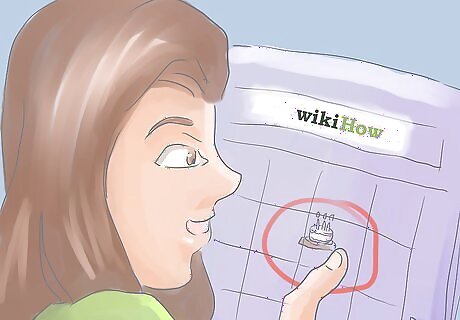
Think of things that you are thankful for. An attitude of gratitude will make you a happier, warmer person. When you're driving alone or reflecting on your day, focus on the good things in your life, and you will end up feeling better. Here are some ways to build a habit of thankfulness: At the end of every day, think of three positive things that happened. Reflect on why you're glad about them, and write them down if you wish. Keep a list of things you're grateful for. Add to it every day. Write a list of the good things in life (hot chocolate, rainbows, good friends, fuzzy animals, etc.). Add illustrations or photos if you feel like it. Then look through the list whenever you're having a bad time.
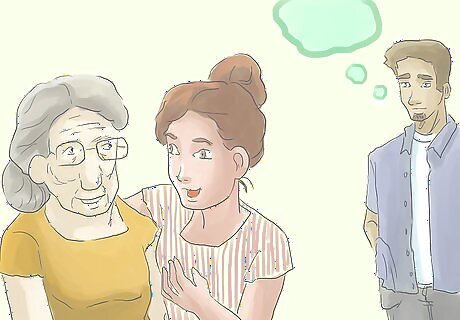
Think about all the things you love about your friends and family members. Write them down if you want to. Remind yourself often of why you care about them, and what makes them special.
Being With Others

Be open and approachable. If you look approachable to others, they're more likely to hold a conversation with you. Be open, treat others with compassion, and prepare some conversations ahead of time to help you get to know others. See the above image as a prime example of how to not look open to conversation.
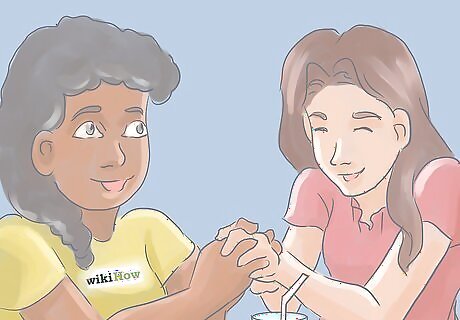
Celebrate other people's successes. A good friend is one who is there not only on the rainy days, but out enjoying the sunshine. Say "I'm happy for you!" and mean it. Recognize and appreciate other people's strengths, too.
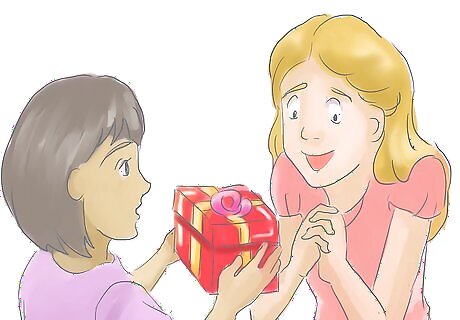
Do good deeds. You should always do good things wherever you are. It doesn't matter how small they are—each tiny effort makes the world a happier place. Give kindness freely, and it will come back to you.

Get involved in a good cause. Choose something that will help a certain group of people: disaster victims, animals at shelters, disabled people fighting stigma, or campaigns that fight hunger. This will help you feel more satisfied with yourself, and lets you practice empathy and kindness along with learning, growing, and gaining new skills.

Tell others how much they matter to you. This doesn't necessarily mean taking them aside and launching into a monologue about how wonderful they are (although there's nothing wrong with that). You can also do it in little ways: compliments, smiles, listening about their interests, gifts, little things to make their lives easier, hugs, et cetera. Every day, resolve to show love to at least 3 people in some small way.
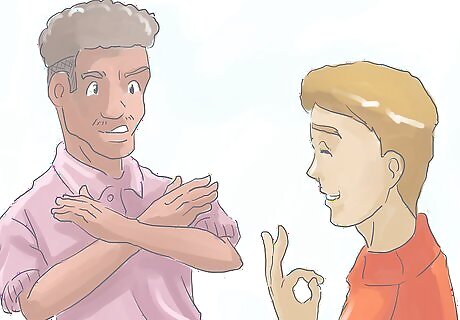
Know that it's okay not to be 100% warm all the time. Sometimes, people try to take advantage of your kindness, bully others, or spread hurtful information, and it is absolutely okay to be firm with them. You can even be rude if you have to. You have the right to assert your boundaries and protect others, and doing so does not make you less warm or less likable. It is an act of kindness and self care. "Turn the other cheek" is only good advice if the person's conscience will kick in and they will immediately realize that they were in the wrong. Sometimes people will slap the other cheek. In this case, passivity is not the answer, and you will get help or fight back. Sometimes, being firm is an act of kindness. For example, if your son is crying because he doesn't want to go to the doctor, capitulating will only hurt him: he won't get medical attention, and he'll learn that crying will get him out of anything he doesn't want to do. Tough love is okay in these circumstances.
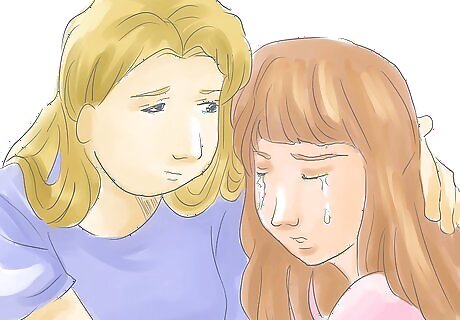
Practice compassion. Whenever you see someone having a bad day or facing a problem, stop and think: "If I were in that situation, how could someone help me?" Offer help when someone is struggling, listen thoughtfully and patiently, and seek to understand before judging others.




















Comments
0 comment